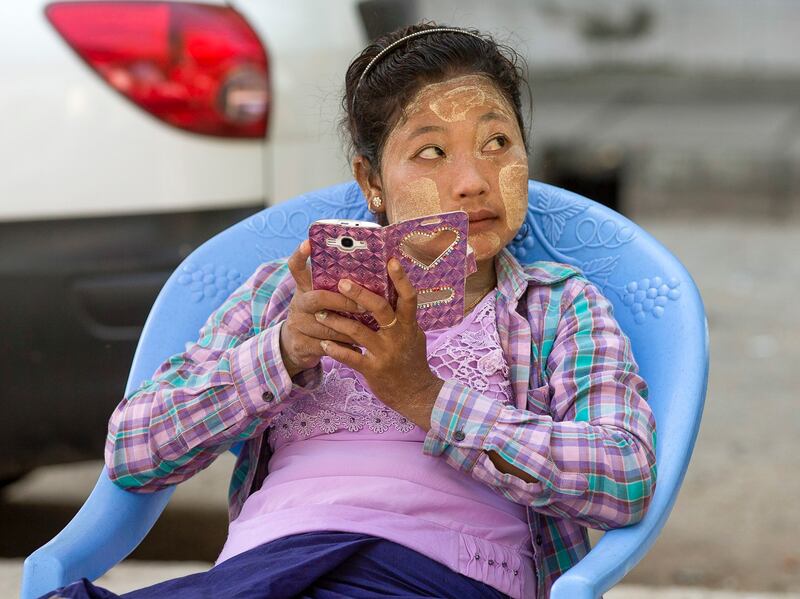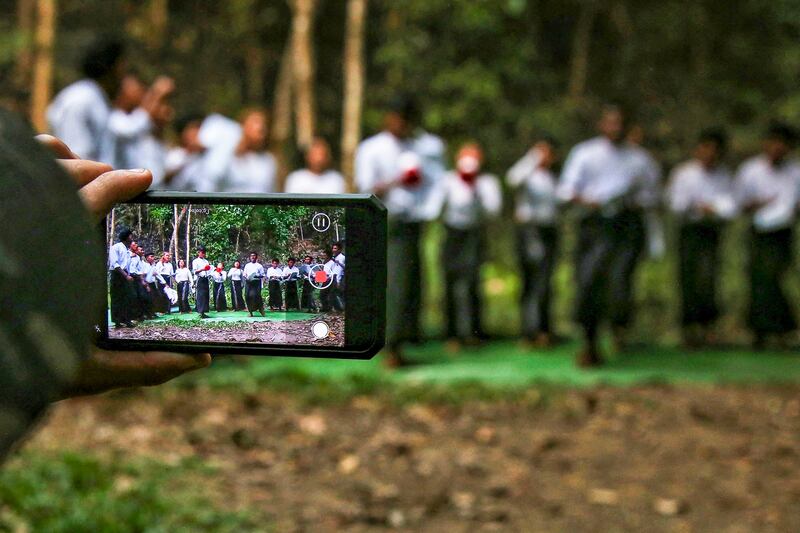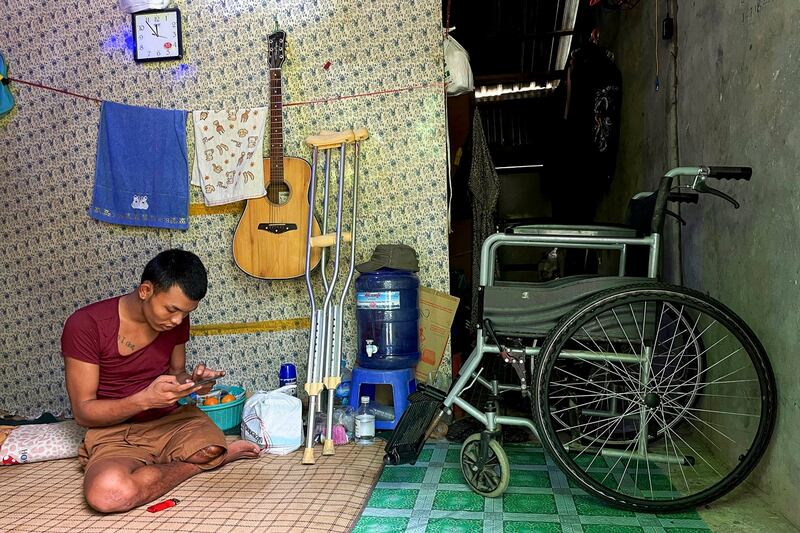Two Chinese companies are helping Myanmar’s military junta to limit citizens’ access to the internet, a covert group of activists opposed to military rule said.
Justice for Myanmar linked the two companies, Geedge Networks and the state-owned China National Electronics Import and Export Corporation, or CEIEC, to scientist Fang Binxing, who was instrumental in creating China’s “Great Firewall” that controls access to the internet.
“Leaked plans show two products from the Chinese company Geedge Networks for the junta's surveillance and censorship system,” Justice for Myanmar wrote in a Facebook post June 19.
The group said CEIEC has been involved in “a proposed location tracking system for the junta controlled communications ministry.”

Since the end of May, the junta has blocked Virtual Private Networks, or VPNs, which mask the location of the devices people use to access the internet. This has coincided with a crackdown by police and soldiers on pedestrians to check their smartphones for VPN software.
Myanmar is the second-worst among 70 countries included in the Freedom on the Net report released in October 2023 by the U.S.-based Freedom House group. China was in last place.
Aiding crimes against humanity
Justice for Myanmar also accused a Myanmar-based conglomerate, Mascots Group of Companies, of acting as an intermediary between the junta and the Chinese companies. The Mascots Group includes around 30 companies operating in Myanmar, Singapore and Thailand, Justice for Myanmar said.
The activist group’s spokeswoman Yadana Maung said in a statement that providing surveillance and censorship technology to the junta will cost lives.
“The junta is killing, torturing and arbitrarily detaining people across Myanmar and this new Chinese technology will further aid and abet the junta’s crimes against humanity as it seeks to track down those who oppose the military’s illegitimate coup attempt,” she said, while accusing the junta of being a terrorist organization.

RFA attempted to contact all three business entities, as well as the Chinese Embassy in Myanmar and the junta’s spokesperson, but received no response.
Other activist organizations echoed Justice for Myanmar’s call for sanctions.
“The VPNs are now closed, and the internet is shut down, websites are blocked. Internet usage is also limited,” said Thinzar Shun Lei Ye, campaign leader for the Acting Committee for Democracy Development. “ Many townships have no access to the internet.”
She said that blocking off the internet in this manner is a violation of the public’s right to access information.
“That's why, at the same time as trying to take action against the military, these companies are helping to control the Internet,” she said. “We need to take action on the participation of companies and countries.”

A technology expert, who asked not to be named for security reasons, said the support of Chinese companies could lessen security of information of VPN users in Myanmar.
"If the personal Information is not safe. People could be using free VPNs where their data may not be secure,” he said. “When we use free VPNs, if we can't provide enough protection, our data can be accessed through (the junta’s) intercepted firewalls. Locations andIP addresses can be detected by detecting these.”
He also said that information from accounts could be easily stolen when security is weak.

A former army officer, who did not want to be named for security reasons, said the government is trying to control the Internet to prevent leaks of military information.
"Although our country is at war, our government is very generous with allowing the public to get internet access in the country where photos of military aircraft taking off are immediately uploaded online,” he said. “The junta did it to prevent information leaking.”
He said that the actions by the junta to regulate internet use would likely not cause a nationwide outrage.
Translated by Aung Naing. Edited by Eugene Whong and Malcolm Foster.
